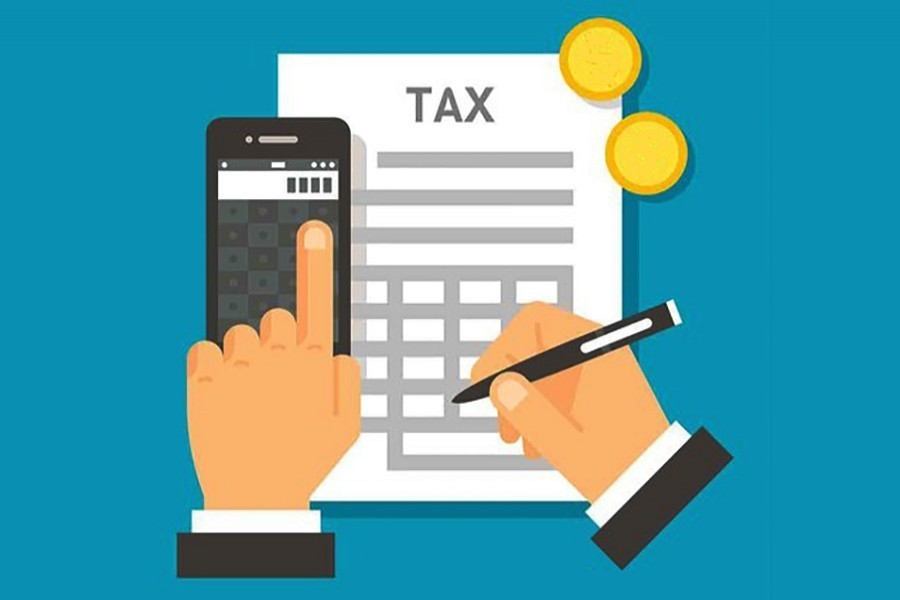
Published :
Updated :

That only a tiny percentage of the people with taxable income is paying tax is an undisputed reality. Bangladesh has the lowest tax-GDP ratio in the South Asia region. A recent survey conducted by the Centre for Policy Dialogue (CPD) showed that nearly 68 per cent of people with taxable income did not pay tax to the government.
The number of e-TIN (electronic tax identification number) holders is over 7.4 million, as of 30th June 2022. Of them, only 2.3 million had submitted tax returns in the last financial year. Then again, a significant number of e-TIN holders had submitted zero-tax returns, meaning they did not pay any tax. The truth is that the latter group needs tax certificates/ tax-return receipts to run their business operations or carry out trade/ bank transactions as required by laws and rules.
The government's earnings in the form of income tax have risen in recent years, but are not commensurate with the size of the economy and the resultant increase in per capita income. The difference is indeed too big.
Tax evasion or tax avoidance is more or less a common practice in Bangladesh. But its extent varies. The multinationals are faithful in tax payments. Local corporate houses do also pay tax on profits regularly, but it is not unusual on their part to play with numbers to pay less than actual payable taxes to the government.
The number of business firms/establishments/ owners of residential and commercial buildings evading tax payments across the country will run into millions. The National Board of Revenue (NBR), reportedly, has tried to bring tax-evading firms under the tax net in recent years, but with no notable success.
The officials and employees working in the organised manufacturing and services sectors are among the people who pay taxes regularly. The management at the end of every month deducts the tax amount from their salaries and deposits the same in the public exchequer. Most others are found reluctant to pay taxes.
The NBR needs to continue to expand its tax net to help generate more revenues for the government. At the same time, it will be important to find out the reasons behind people's reluctance to pay taxes.
In Bangladesh, there are six tax slabs, the highest being 25 per cent. There are countries, mainly developed ones, where the rate is as high as 40 per cent and the people there pay taxes regularly.
The desire or motivation to pay taxes is very important. But that does not come automatically. Benefits commensurate with the payment of taxes need to be there to motivate people to pay taxes. Old-age pensions, free medical, and health insurance are among the benefits that most developed countries ensure for their citizens. Here, nothing is given as an incentive to the taxpayers. The government might say that taxpayers' money is spent on building roads, hospitals and other structures and maintenance of state machinery. A regular taxpayer does not enjoy any preference or special treatment while availing of the services of these facilities. He or she is treated just like others. Nor a taxpayer on his/her retirement enjoys any benefit, financial or otherwise, as a senior citizen. Thus, it will be important for the government to introduce minimum benefits for taxpayers when they become senior citizens.


 For all latest news, follow The Financial Express Google News channel.
For all latest news, follow The Financial Express Google News channel.